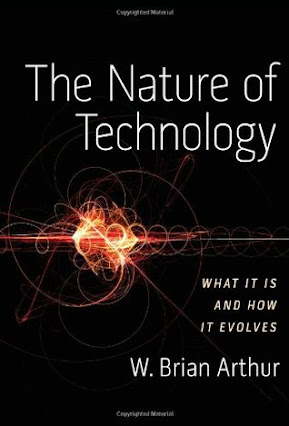Economics and technology
Looking back in history we can see epochs of particular dominant technologies. However, globally the classification is messy, with not all societies going through the same transitions roughly simultaneously - obviously.
Also the transitions are periods of time and different classifications focus on different phenomena.
- The "stone age" for example extends well into the time of agriculture and early metallurgy.
- Bronze age full production agriculture, writing ending around 1100-1200 BC
- Iron age
- Then we hit the European Scientific and Industrial revolutions we we could think as short transition, or on going.
If you god back and look at an Economist issue from the 1980 and 1990s technology only makes surprise mentions. Today, an given issue is filled with discussions of technologies because hundreds of technologies not only change what consumers buy but how things are made or transported.
Economics and Christianity.
This topic matters not just because it matters to the topic of technology and Christianity – it matters to me because I spent years trying to understand how economics and Christianity might come together.
A few broad observations
- A lot of what I have read starts with contemporary economic questions and tries to find answers in the Bible (a long favourite of bad Bible reading).
- One example – one book used the 10 commandments rule to not steal to suggest that the Bible supports private Property and thus is against communism. A 1980s question read back into the Bible. The commandments to help the poor etc was not a big part of the book (written in the USA).
- Lots of the work discusses the role of Old Testament Law – because it can’t pass anybody’s attention that the Old Testament has lots to say about Economics. ... and then goes on to say the New Testament is different.
- My observation across hundreds of articles there is no no compass for the topic – every article starts somewhere different
In the second situation – we have stripped all the political and economic meaning out of the New Testament and spiritualised it.
Jesus riding into Jerusalem like a Caesar except he is on a donkey, Paul saying there is no slave or Greek or Jew Male and Female – this had real economic meaning. Or Paul asking that Slaves be treated like family.
See what did my head in for years was the innovativeness of the early Christian – charities, hospitals for the public etc versus the staticness of the rest of society and later Christians.
So how has Christian economics been thought of… I think this excerpt from
Kim Hawtrey – who I respect and have met several times does justice to many of the existing views when this was a hot subject in 80s and 90s and less so now from my observations.
Creation, Fall and Redemption the traditional Evangelical Triad. We have come such a long way. Hear how N T Wright now describes what Paul was doing.
N T Wright. "What was the Apostle Paul trying to do: he was founding and maintaining communities - worship based, educational, egalitarian, philanthropic, fictive kinship groups" (non biological kinship I suspect - kinship of the imagination).
I would now put forward the idea that it is possible to have a compass.
The Bible’s own native motif is not so much sin but ‘new creation’. Sin is actually taken for granted the call is to live better. To be a New Creation.
if New Creation is the more dominant language of the Bible.
If the world is already going and Adam and Eve
are called like Israel to be transforming agents and they fail …. NT Wright.
The story starts to look a lot like Israel and
perhaps that is the point…..
This make more sense of all the language in the Old testament to treat human better. Indeed, treat them like other cultures thought they needed to treat the gods.- This what we read in a previous blog.
There is lots to ponder about that.
And indeed much to apply to how we think of technology.
Hope that is helpful.























